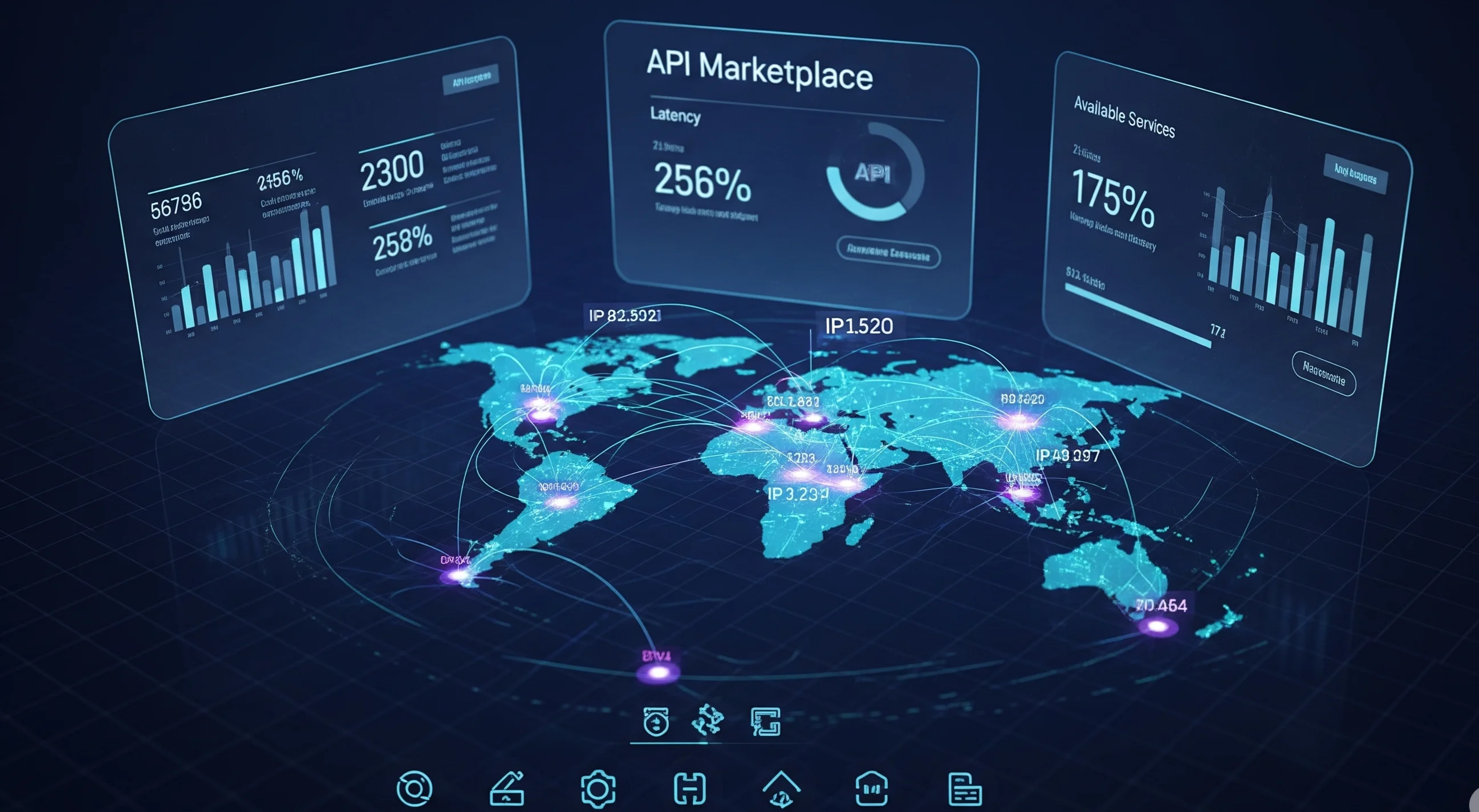An API marketplace is a centralized hub where developers and businesses can discover, purchase, and integrate APIs. Just like app stores, API marketplaces streamline the process of finding solutions for specific needs such as payment processing, weather data, or IP geolocation.
Among the most widely used are IP address location APIs, which enable businesses to identify the geographical location of users based on their IP addresses.
What is an IP Address Location API?
An IP address location API provides information such as a user’s country, city, region, postal code, time zone, and sometimes even ISP details, based on their IP. This data allows businesses to personalize services, secure platforms, and improve user experiences.
For instance, a streaming service may use an IP location API to display region-specific content.
Role of API Marketplaces in IP Geolocation
API marketplaces act as one-stop shops for developers seeking IP geolocation APIs. Instead of searching across different providers, businesses can:
-
Compare features side-by-side
-
Evaluate pricing models
-
Test APIs before committing
-
Scale usage based on subscription plans
Why Businesses Need an IP Address Location API
Fraud Prevention and Security
Identify suspicious activities like logins from unusual locations.
Content Personalization
Show relevant products, currency, or language based on user location.
Targeted Advertising
Deliver region-specific ads to improve conversion rates.
Compliance and Data Regulations
Ensure services comply with location-based legal requirements like GDPR.
How Does an IP Address Location API Work?
IP location APIs work by mapping an IP address to its geolocation data using large databases updated from ISPs, mobile carriers, and internet registries. When a developer makes an API call, the response includes details such as:
{
"ip": "8.8.8.8",
"continent": "North America",
"country": "United States",
"region": "California",
"city": "Mountain View",
"isp": "Google LLC"
}
Features of a Reliable IP Location APIs
Accuracy of Geolocation Data
High-quality APIs regularly update their databases for precision.
Speed and Scalability
Responses should be fast enough to support millions of API calls daily.
Global Coverage
Access to data from 200+ countries ensures global relevance.
Security and Privacy
Data encryption and compliance with privacy laws are essential.
Common Use Cases of IP Address Location APIs
E-commerce and Retail
Show product prices in local currencies and suggest nearby stores.
Streaming Platforms
Restrict or allow content access based on licensing agreements.
Cybersecurity and Fraud Detection
Flag login attempts from unusual or blacklisted regions.
Financial Services
Enhance KYC processes by validating user locations.
Comparing Popular API Marketplace Providers
IPStack
Known for real-time IP geolocation with easy integration. Explore here.
MaxMind
Popular for its GeoIP2 database and fraud detection tools.
Abstract API
Developer-friendly with simple documentation and scalable plans.
IPinfo
Offers advanced features like ASN data and carrier detection.
Step-by-Step Guide: How to Access an IP Location API via API Marketplace
Register on the Marketplace
Sign up with your preferred marketplace platform.
Generate an API Key
Receive a unique key to authenticate requests.
Make API Requests
Use endpoints to fetch geolocation data in JSON or XML format.
Monitor Usage and Performance
Track request limits, response times, and API reliability.
Pricing Models in API Marketplaces
-
Free Tier: Limited monthly requests for testing.
-
Pay-as-you-go: Charged per request.
-
Subscription Plans: Tiered pricing for businesses.
-
Enterprise Plans: Custom contracts with SLAs.
Benefits of Using an API Marketplace for Geolocation APIs
-
Quick comparison of providers
-
Easy onboarding and testing
-
Access to multiple APIs under one platform
-
Transparent pricing and scaling
Challenges and Limitations of IP Address Location APIs
-
Accuracy may vary in rural areas
-
VPNs and proxies can mask true locations
-
Free plans often have limited features
Best Practices for Implementing IP Location APIs
-
Cache frequent queries to save costs
-
Use fallback providers to avoid downtime
-
Monitor API performance regularly
-
Ensure compliance with data protection laws
Future of IP Geolocation and API Marketplaces
The future points toward AI-enhanced IP detection, integration with 5G data sources, and deeper insights beyond geolocation, such as behavioral analytics. API marketplaces will continue to play a critical role by providing developers with a centralized ecosystem for accessing these innovations.
FAQs
1. What is an IP address location API?
It’s a tool that provides the geographical location of a user’s IP address.
2. How accurate are IP location APIs?
They are generally 90–95% accurate at the country level, but city-level accuracy may vary.
3. Can IP location APIs detect VPNs?
Yes, some advanced APIs provide VPN and proxy detection features.
4. Is there a free IP location API?
Yes, providers like IPStack and IPinfo offer free tiers for limited requests.
5. Why use an API marketplace for IP location APIs?
It allows businesses to compare providers, pricing, and features in one place.
6. Do IP location APIs respect privacy laws?
Trusted providers comply with GDPR and other global regulations.
An API marketplace makes it easier for businesses to discover and integrate the right IP address location API. From fraud prevention to content personalization, these APIs power secure and localized user experiences. By selecting reliable providers and following best practices, businesses can unlock the full potential of geolocation technology in 2025 and beyond.






